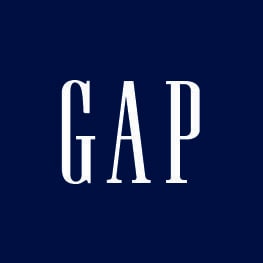Company Directory - Retailers, Restaurants, and Brands
Company Details - Retailers, Restaurants, and Brands

Retailers, Restaurants, and Brands
This category encompasses companies in the retail and food service sectors that are committed to sustainable seafood practices. These companies include a diverse range of businesses from fast-food restaurants and retail chains to global brands that integrate sustainability into their operations and supply chains.
CCI Score
CCI Score: Retailers, Restaurants, and Brands
-15.33
0.07%
Latest Event
NLRB Ruling Overturns Starbucks’ Union Messaging Precedent
The National Labor Relations Board overturned nearly 40 years of precedent by ruling that employer statements regarding the impact of unionization are unlawful. This decision, which directly affects Starbucks and may signal broader issues within the retail and restaurant sectors, highlights longstanding practices that undermine workers’ rights and fair unionization efforts.
Take Action
So what can you do? It's time to make tough choices. Where will you cast your vote?
- Shop Alternatives
SEE ALL - Use Your Voice
OTHER TOOLS - Investigate
- Share the Score
SUPPORT CCI
ENABLER
Retailers, Restaurants, and Brands is currently rated as an Enabler.
Latest Events
 JAN152025
JAN152025The National Labor Relations Board overturned nearly 40 years of precedent by ruling that employer statements regarding the impact of unionization are unlawful. This decision, which directly affects Starbucks and may signal broader issues within the retail and restaurant sectors, highlights longstanding practices that undermine workers’ rights and fair unionization efforts.
-60
Labor Relations and Human Rights Practices
March 19
The NLRB ruling exposes problematic labor relations practices, particularly coercive communications aimed at undermining unionization efforts. This decision reflects a negative stance on how companies in the retail and restaurant sector, exemplified by Starbucks, have historically handled worker relations, thus contributing to an environment that may indirectly support authoritarian methods by suppressing worker voices.
Labor Board's Starbucks decision overrules almost 40 years of precedent
 NOV082024
NOV082024An NLRB administrative law judge ruled that Trader Joe’s unlawfully prohibited employees at its Hadley, Massachusetts store from wearing union insignia, representing a significant violation of workers' rights and labor protections.
-80
Labor Relations and Human Rights Practices
November 15
Trader Joe’s actions—preventing workers from displaying union insignia and penalizing employees who supported unionization—represent a severe infringement on labor rights. This ruling underscores the company's disregard for lawful employee expression and union support, contributing to an environment that undermines democratic labor practices and echoes authoritarian suppression of worker rights.
Trader Joe’s took unlawful steps to stop employees from supporting unionization, NLRB rules
 OCT282024
OCT282024The article reveals that major US food and beverage companies have scaled back their political donations to a multi‐year low during the current election cycle. Such a decrease suggests these companies, which include many retailers, restaurants, and brands, are avoiding overt political entanglement that could otherwise fuel authoritarian influence. From an anti‑fascist perspective, this reduced engagement in partisan financial contributions is viewed positively as it lowers the risk of corporations indirectly supporting authoritarian agendas.
+40
Public and Political Behavior
March 19
The significant drop in political donations across top food and beverage companies indicates a deliberate move away from leveraging political contributions to gain undue influence. This reduced participation in political financing lessens the potential for companies to enable authoritarian practices through financial clout. The positive score reflects the anti‑fascist view that minimizing monetary political influence is a step toward reducing corporate complicity in the rise of authoritarianism.
Political donations from 15 of the largest US food and beverage makers plunge
 OCT282024
OCT282024A recent analysis reveals that political donations from some of the largest U.S. food and beverage companies have plummeted, suggesting a withdrawal from active political engagement. This trend may indicate an effort to avoid enabling divisive and potentially authoritarian political practices.
+50
Political Contributions and Lobbying Efforts
March 19
The reported decline in political donations—specifically in areas associated with political contributions and lobbying efforts—indicates a move by major food and beverage companies to reduce their engagement in political financing. From an anti-fascist perspective, lowering such contributions can diminish the risk of corporates fueling agendas that bolster authoritarian practices. However, this positive development should be monitored over time to ensure it represents a sustained commitment to democratic engagement.
Political donations from 15 of the largest US food and beverage makers plunge
 JAN182024
JAN182024An investigation into forced labor issues in the food supply chain raises serious concerns about labor rights and ethical sourcing practices among companies in the retail and food service sectors, including potential risks in the seafood supply chain.
-40
Labor Relations and Human Rights Practices
March 19
The Moody's report underscores pervasive forced labor practices that undermine worker rights, particularly in food-related sectors. This raises questions about companies' adherence to fair labor practices, especially for those claiming commitment to sustainability.
-50
Supply Chain Ethics
March 19
The article details systemic forced labor practices within the supply chain, notably in sourcing food products such as seafood. The risks exposed in international sourcing undermine ethical supply chain management and sustainability commitments expected of companies in this sector.
 JAN102024
JAN102024Starbucks is facing a lawsuit alleging that despite marketing its commitment to ‘100% ethical sourcing’, it knowingly procures coffee and tea from suppliers accused of severe labor and human rights abuses. The suit highlights critical issues in the company’s labor practices and supply chain oversight.
-70
Labor Relations and Human Rights Practices
March 19
The lawsuit details significant labor abuses in Starbucks' supply chain, including unsafe labor practices, wage garnishment, and the employment of underaged workers. Such allegations indicate a troubling disregard for ethical labor relations and human rights, undermining the company's proclaimed commitment to 100% ethical sourcing.
-80
Supply Chain Ethics
March 19
The case exposes flaws in Starbucks' supply chain ethics, undermining its claim of '100% ethical sourcing'. Despite having certification programs in place, there remain significant gaps in verifying supplier compliance with human rights standards. Continued dealings with suppliers linked to forced labor and other abuses directly contribute to corporate complicity in systemic exploitation.
 JUN012020
JUN012020Following widespread protests after George Floyd's death, major restaurant chains including Taco Bell, Starbucks, and Wingstop engaged in proactive communication and community support measures. Executives reached out to employees with letters outlining their commitment to social justice, allyship, and diversity, setting a positive example in the face of political unrest.
+80
Public and Political Behavior
March 19
The CEOs and executive teams publicly communicated with employees and the broader public through letters and social media, emphasizing a commitment to social justice and democratic values. This form of executive political engagement opposes authoritarian practices by demonstrating transparent support for community empowerment and anti-racism.
+70
Business Practices and Ethical Responsibility
March 19
The companies demonstrated ethical responsibility and strong labor relations by engaging with employees through open dialogues on diversity and inclusion. Their active efforts to support community initiatives and uphold fair practices contribute positively towards resisting authoritarian trends.
Alternatives
Seattle, United States
20.20

Israel
-66.52

San Francisco, United States
-1.81

Paris, France
-20.61
London, United Kingdom
43.32
Toronto, Canada
30.78
London, United Kingdom
26.22
New York City, United States
15.94

Ann Arbor, USA
2.92

Louisville, United States
-5.27
Industries
- 445110
- Supermarkets and Other Grocery Retailers (except Convenience Retailers)
- 722511
- Full-Service Restaurants
- 722513
- Limited-Service Restaurants
- 448190
- Other Clothing Stores
- 448140
- Family Clothing Stores
- 448320
- Luggage and Leather Goods Stores
- 448210
- Shoe Stores